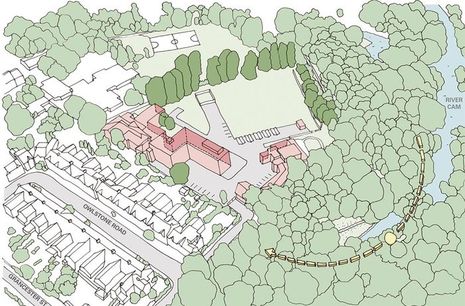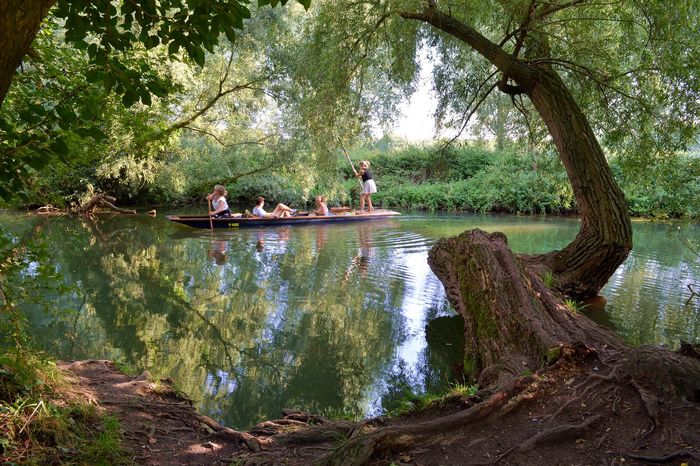City council blocks Queens’ accommodation development
The move comes despite recommendations from council planning officers that the proposal be approved

Cambridge city council voted yesterday (11/01) to reject a proposal to expand Owlstone Croft, a Queens’ College accommodation block near the Paradise Nature Reserve.
The proposal was rejected six councillors to one after a six hour long planning committee meeting on the matter. The councillors rejected the proposal despite council planning officers recommending its approval.
Councillors cited the development’s size and proximity to the Paradise Nature Reserve to claim that it would ruin the reserve’s character. Councillors also rejected the proposal on the grounds that there was a lack of information demonstrating that local bat populations wouldn’t be harmed and insufficient evidence that the development would not harm the biodiversity of the reserve.
Councillors also suggested that students living on the site would damage the proposed wetland that would come with the development meaning the promised increase in biodiversity would not be achieved.
The meeting was attended by an exceptionally large number of members of the public after the activist group Friends of Paradise encouraged their members to attend the meeting.
Members of the public were not allowed to speak during the council’s deliberations, though many interrupted the proceedings anyway prompting warnings from the committee chair.
Members of the public were given an opportunity to make their case before the committee made their deliberations. Speaking against the proposal, one local resident called the proposal “profit for profit’s sake” and claimed that children at the nearby Newnham Croft primary school would “once again be unable to learn on site”. The resident compared disruption caused by the proposed construction site to disruption caused by the coronavirus pandemic.
Pamela Gatrell, chair of Friends of Paradise, also spoke in opposition. Citing an ecology report commissioned by the group, Gatrell claimed the college had provided “inadequate and misleading information” for the proposal.
Gatrell said that although the college had claimed there would be no harm to the local wildlife, the group’s report demonstrated significant risk particularly to the rare Barbastelle species of bat.
Gatrell also repeated claims that the group had not been consulted on the development and were only shown plans. Speaking subsequently in proposition, Queens’ domestic bursar Andrew Bainbridge denied these claims stating that the group had “refused our invitation at early stages to to input constructively to the landscape and ecology designs” and that the group only wanted to comment after the application had been submitted.
Bainbridge also challenged the idea that the development would impact the biodiversity of the reserve, instead claiming that the development would increase the biodiversity of the site by 50%. The bursar also highlighted that no council officer or statutory consultee raised an objection to the development, and described the use of the nature reserve a source of objection as “political” in nature.
One Queens’ student, Emma Munday, also spoke in favour of the proposal citing the need for more college accommodation. Munday spoke to the lack of accommodation driving students into the private sector in “the second most expensive city in the country” and claiming the “private sector acts to widen inequalities in the student body”.
Munday also drew attention to the lack of student representation in the chamber, highlighting that students “are those most directly impacted”.
Both proposition speakers were met with grunts of disagreement by members in the audience, particularly when discussing issues relating to ecology.
Councillors who spoke in the chamber were unanimous in their opposition to the proposal regardless of party affiliation. Council chair Martin Smart was alone in his support for the proposal, though he did not speak on either side of the debate due to his position as chair.
The college can now either amend the proposal or appeal the council’s decision to the national planning authority.
 Comment / Plastic pubs: the problem with Cambridge alehouses 5 January 2026
Comment / Plastic pubs: the problem with Cambridge alehouses 5 January 2026 News / Cambridge academics stand out in King’s 2026 Honours List2 January 2026
News / Cambridge academics stand out in King’s 2026 Honours List2 January 2026 News / Cambridge businesses concerned infrastructure delays will hurt growth5 January 2026
News / Cambridge businesses concerned infrastructure delays will hurt growth5 January 2026 News / AstraZeneca sues for £32 million over faulty construction at Cambridge Campus31 December 2025
News / AstraZeneca sues for £32 million over faulty construction at Cambridge Campus31 December 2025 Interviews / You don’t need to peak at Cambridge, says Robin Harding31 December 2025
Interviews / You don’t need to peak at Cambridge, says Robin Harding31 December 2025









